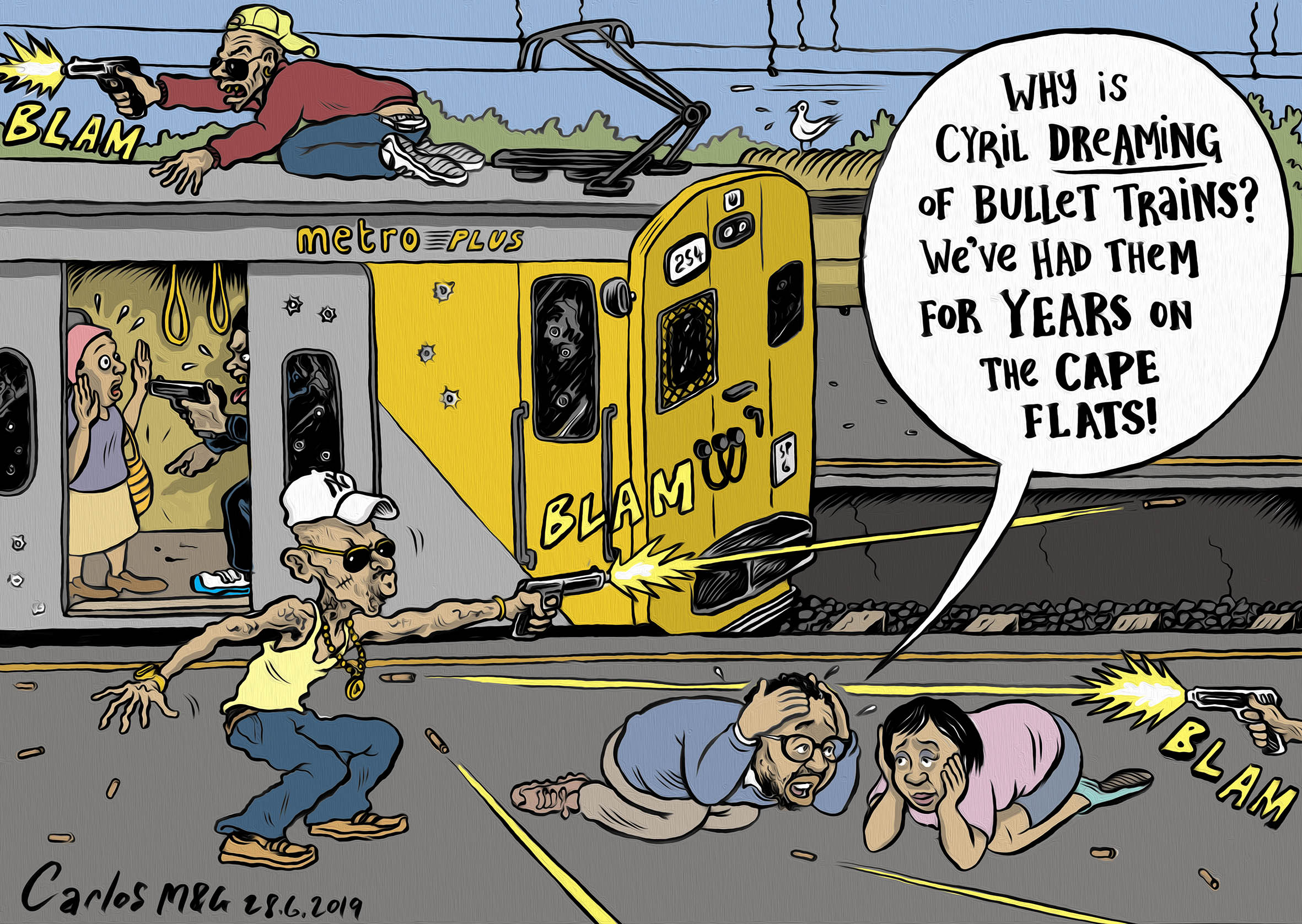Daring to dream: Cyril Ramaphosas response to the State of the Nation debate gave details on his vision for the country. Photo: David Harrison
President Cyril Ramaphosa redeemed himself in his reply to the State of the Nation debate in Parliament this week after an uncharacteristically vague and obtuse speech last Thursday.
His State of the Nation address was marred by a lack of urgency, focus and a strategic thrust to turn around the immediate crises in the country.
It appeared that the president was talking around these problems and not to them.
The element for which he was most criticised by opposition parties was the aspirations he expressed at the end of the address, in which he articulated his dream for a bullet train and a new smart city. But such criticism is short-sighted.
For far too long, South Africa was blighted by a president without dreams for his nation; his aspirations and ambitions were for himself, his family and his friends.
It was refreshing to hear the current president articulate his dream and vision for the nation he leads.
The real problem with his address last week was that it was all business as usual and hardly touched on the weight of the issues pressing down on the country.
Perhaps there is a problem with the speechwriter or he was annoyed that ANC secretary general Ace Magashule once again opened up the party to criticism over his dodgy appointments to the parliamentary committee chairpersons?
Although early on in his speech, Ramaphosa acknowledged the country’s economic woes and emphasised that the sixth administration would focus on implementation, he did not tell the nation how.
Eskom simply receives a cash injection through an appropriations Bill, despite it being at the heart of the country’s poor economic performance after days of uninterrupted load-shedding contributed to a 3.2% contraction in the country’s gross domestic product in the first quarter.
A new chief executive and a chief restructuring officer is on the cards to push ahead with the unbundling of the monolithic power utility, but there was no word on how it will rein in its spending and collect what is owed to it.
There was also no word from the president on how his administration will rein in state spending in general. In fact, his promises look set to bolster spending and expand the already bloated public service. There was no detail on creating jobs and not a murmur about the dire state of the country’s municipalities — arguably the second most pressing problem directly hitting citizens, after the economy.
In his reply, Ramaphosa took the criticism on the chin and was gracious toward opposition leaders Mmusi Maimane and Julius Malema — whose responses to the State of the Nation address were rock solid.
Ramaphosa fleshed out his plans for a second investment drive, he gave an outline for our African Union chairpersonship in 2020, reported back on the land report and acknowledged the dire state of municipal finances.
The dust had barely settled on the opening of Parliament, however, when companies continued to announce retrenchments. MultiChoice, Parmalat, Standard Bank, Absa and Tongaat Hullet are shedding jobs. State-owned enterprises are no better off. Denel announced it would not be paying full salaries at the end of the month. Although Public Enterprises Minister Pravin Gordhan then announced that a “lender” has been found and Denel salaries would be paid, it was again an illustration of the short-termism and lack of planning afflicting government.

Denel’s finances have been in the red for more than a year. The same applies to the SABC.
On Wednesday, auditor general Kimi Makwetu released his report on municipal finances in which municipalities posted about R25-billion in irregular spending in 2017-2018. Although this figure is down from 2016-2017, when it was R29-billion, clean audits in the country’s municipalities dropped from 14% to 8%.
As Magashule plays factional politics and spends his days thinking of ways to undermine and weaken Ramaphosa, evidence of his misrule over the Free State continues to emerge.
Makwetu on Wednesday said the finances in all the Free State municipalities were in a perilous state and the financial crisis in the province has become a “critical concern”, with a “total breakdown in internal controls as the province’s political and administrative leadership, yet again, exhibited no response to improve its accountability for financial and performance management”.
Yet, the man under whose watch this state of affairs set in is at the heart of the ANC’s headquarters, now directing its national government.
The ANC’s electoral support has been declining since 2009, with its poorest showing in a general election posted in 2019.
It posted a positive 58% this year because of two key factors: weak opposition parties who have consistently failed to capture the imagination of the electorate and the whiff of a reform agenda pushed by Ramaphosa.
Local government elections take place in two years’ time. Ramaphosa and his government must show that they have both hands on the wheel — as he and his ministers did this week.
Failing this, further electoral decline is inevitable.
The time for former president Thabo Mbeki’s “business unusual” is now.